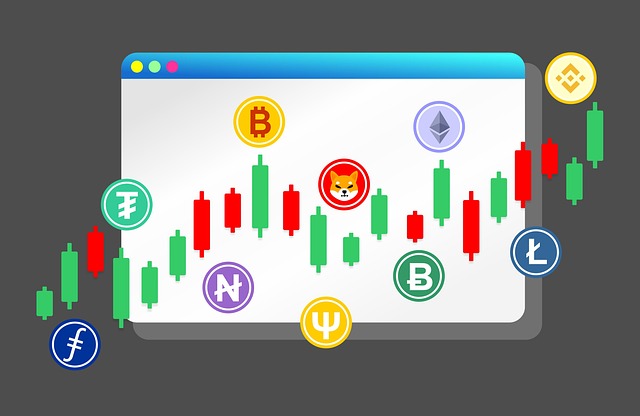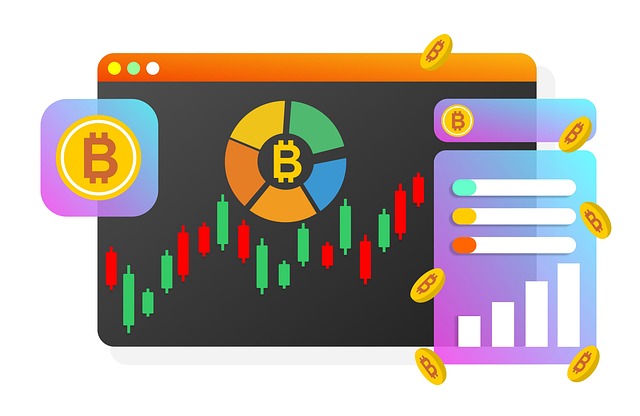Understanding Crypto Wallets: Types, Benefits, and Best Practices
Author: Jameson Richman Expert
Published On: 2025-05-25
Prepared by Jameson Richman and our team of experts with over a decade of experience in cryptocurrency and digital asset analysis. Learn more about us.
A crypto wallet is an essential tool for anyone who wants to engage in cryptocurrency transactions, providing both security and convenience for storing digital assets. In this comprehensive guide, we will delve into the different types of crypto wallets, their benefits, best practices for securing your funds, and some of the most recommended wallets available today.

What is a Crypto Wallet?
A crypto wallet is a software program or hardware device that allows users to store, send, and receive cryptocurrencies. Unlike a physical wallet, a crypto wallet doesn't store physical money. Instead, it holds the cryptographic keys needed to access your digital currencies on the blockchain. These wallets can be categorized into two main types: hot wallets and cold wallets. Understanding how these wallets work is crucial for safeguarding your assets.
Types of Crypto Wallets
Hot Wallets
Hot wallets are connected to the internet, making them convenient for frequent transactions. They are ideal for traders who need quick access to their funds. However, the constant connection to the internet makes them more vulnerable to hacking attempts. Popular hot wallets include:
- Web Wallets: These are accessible via a browser and are often provided by crypto exchanges like Binance, which allows for easy access and management of your assets. They provide integrated features such as trading and asset exchange.
- Mobile Wallets: Apps that you can download on your smartphone, such as Trust Wallet and Coinomi, which offer user-friendly interfaces and functionality for on-the-go transactions. Many mobile wallets also support QR code scanning for easier transfers.
- Desktop Wallets: Software that you can install on your computer, such as Exodus and Electrum, providing a balance of convenience and security for regular users. Desktop wallets often come with advanced features, including multi-signature support and integration with hardware wallets for added security.
Cold Wallets
Cold wallets, on the other hand, are offline and provide a higher level of security. They are perfect for long-term holders who don’t need to access their cryptocurrencies frequently. Types of cold wallets include:
- Hardware Wallets: Physical devices like Ledger Nano S and Trezor, which store your keys offline, significantly reducing the risk of online threats. These wallets often come with built-in security features like PIN protection and recovery seed generation.
- Paper Wallets: A physical printout of your public and private keys, offering an offline storage solution that is immune to hacking. However, they must be stored securely to prevent loss or damage, and creating them should be done using secure methods to avoid exposure to malware.
Benefits of Using a Crypto Wallet
Using a crypto wallet offers several advantages, including:
- Security: Wallets provide a secure way to store your digital assets away from potential hacks. Cold wallets, in particular, offer enhanced security through offline storage, making them ideal for long-term investments.
- Ownership: With a private key, you have full control over your funds, unlike keeping them on an exchange where you may be subject to withdrawal limits and security risks. This ownership empowers users to manage their assets without reliance on third parties.
- Convenience: Wallets, especially hot wallets, allow for quick transactions whenever needed, making them suitable for active traders and everyday users alike. Many wallets also support a wide range of cryptocurrencies, allowing for diversified asset management.

Choosing the Right Crypto Wallet
When selecting a crypto wallet, consider factors such as security features, user experience, compatibility with various cryptocurrencies, and the wallet's reputation. For instance, platforms like MEXC and Bybit offer integrated wallet solutions within their trading platforms, making it easier to manage your investments without needing separate applications. Additionally, reading user reviews and expert opinions can provide insights into the reliability and functionality of the wallet.
Best Practices for Securing Your Crypto Wallet
To ensure your crypto assets are safe, follow these best practices:
- Use Two-Factor Authentication: Always enable 2FA for an extra layer of security, especially on exchanges and online wallets. This can significantly reduce the risk of unauthorized access.
- Keep Your Software Updated: Regular updates help protect against vulnerabilities. Make sure to keep both your wallet software and any associated applications current to benefit from the latest security patches.
- Back Up Your Wallet: Always have a backup of your wallet’s private keys and recovery phrases stored securely in a different location. This ensures you can recover your assets if your wallet is lost or damaged.
- Be Wary of Phishing Attempts: Always double-check URLs and emails related to your wallet and cryptocurrency exchanges to avoid falling victim to scams. Use official channels and bookmark important sites to avoid typos.
- Use Strong Passwords: Ensure that your wallet and associated accounts have strong, unique passwords to prevent unauthorized access. Consider using a password manager to generate and store complex passwords securely.
Conclusion
In conclusion, a crypto wallet is a fundamental aspect of participating in the cryptocurrency ecosystem. By understanding the types of wallets available and implementing best practices, you can significantly enhance your security and manage your digital assets more effectively. Whether you choose to use a hot wallet for its convenience or a cold wallet for its security, the key is to remain informed and vigilant in this rapidly evolving landscape.
For those interested in trading, platforms like Bitget not only provide trading services but also integrate wallet solutions, making it simpler to manage both trading and storage of cryptocurrencies. Always remember to do your research before choosing any wallet or exchange, as the right choice can greatly impact your overall cryptocurrency experience. The landscape of cryptocurrency is continually changing, and staying updated with the latest developments is essential for successful asset management.

Frequently Asked Questions (FAQs)
1. What is the difference between a hot wallet and a cold wallet?
Hot wallets are connected to the internet and are generally more convenient for everyday transactions. Cold wallets, however, are offline and provide enhanced security, making them ideal for long-term storage of cryptocurrencies.
2. Can I use multiple wallets for my cryptocurrencies?
Yes, many users opt to use both hot and cold wallets simultaneously. This strategy allows for easy access to funds for transactions while keeping the majority of assets secure in a cold wallet.
3. How do I choose the best wallet for my needs?
Consider factors such as security features, user interface, compatibility with the cryptocurrencies you own, and the wallet's reputation in the community. Look for reviews and expert recommendations to make an informed decision.
4. What should I do if I lose access to my crypto wallet?
If you lose access to your wallet, recovery will depend on whether you have backed up your private keys or recovery phrases. If you have these, you can restore your wallet on a compatible platform. If not, you may lose access to your funds permanently.
5. Are crypto wallets safe?
While no system is entirely without risk, using a reputable wallet and following best security practices can significantly reduce your risk of loss. Cold wallets are particularly safe from online threats.
Additional Resources
For those looking to expand their knowledge of cryptocurrency wallets and security measures, consider exploring the following resources:
- Investopedia: Cryptocurrency Wallets - A detailed guide on the various types of wallets available and their functionalities.
- Coinbase: What is a Crypto Wallet? - An informative article on the importance of crypto wallets and how they work.
- Bitcoin.com: How to Secure Your Crypto Wallet - Tips and strategies for enhancing the security of your crypto assets.